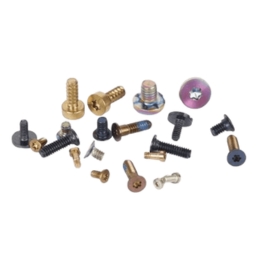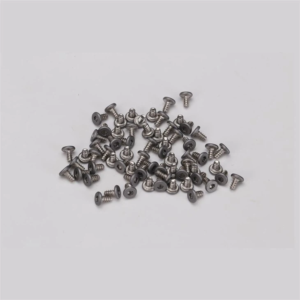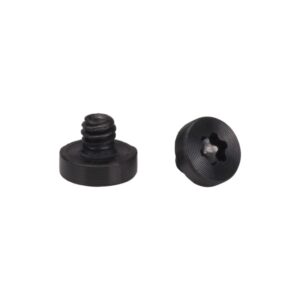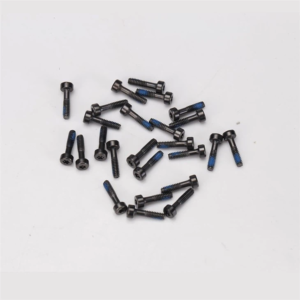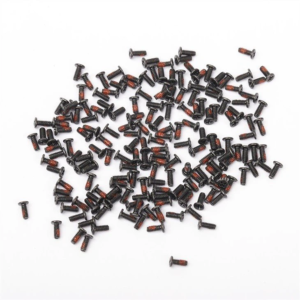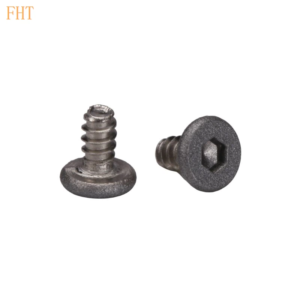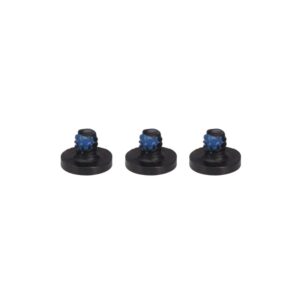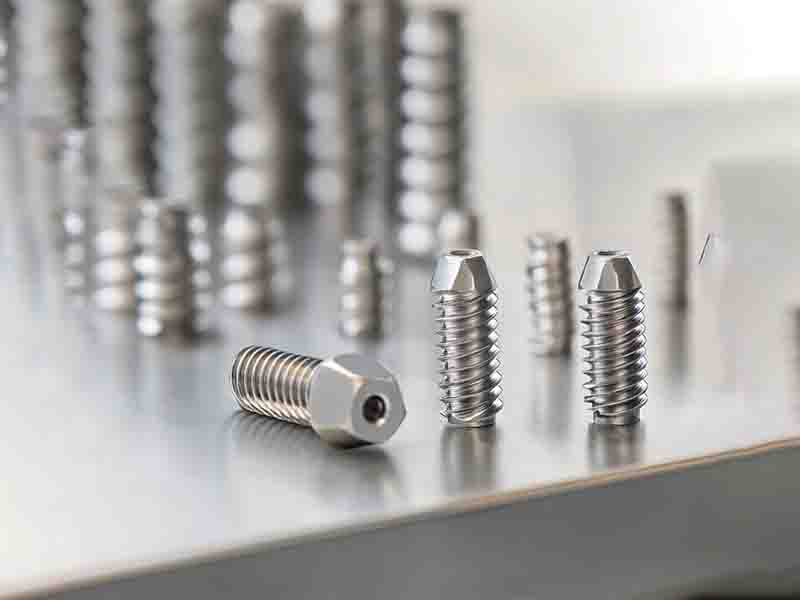
Table of Contents
What Are Self-Drilling Screws?
Self-drilling screws, also known as Tek screws1, are equipped with a drill-shaped tip that allows them to both drill and fasten into materials simultaneously. These screws are particularly useful when you need to drill through harder materials, such as metal2 or thick plastic, without pre-drilling a hole. The sharp, drill-like tip on self-drilling screws allows them to create their own hole while forming threads as they are driven in.
What Are Self-Tapping Screws?
Self-tapping screws, on the other hand, are designed for softer materials3 such as wood, plastic, and thin metal. They don’t have a drill-shaped tip. Instead, they feature a pointed end that allows the screw to tap threads into the material as it is driven in. Self-tapping screws rely on pre-existing holes or pilot holes4 to cut threads, making them ideal for softer materials that don’t require extensive drilling.
Now that we’ve defined both types of screws, let’s dive into the factors that will help you choose the right one for your project.
1. Material Hardness
One of the primary factors to consider when choosing between self-drilling and self-tapping screws is the hardness of the material you’re working with.
-
Self-Drilling Screws: These are best suited for harder materials5 like metal, thicker plastics, or composite materials. Their drill-shaped tip allows them to cut through these materials efficiently. If you’re working with thick metal sheets or need to drill into a hard surface, self-drilling screws will save you the extra step of using a separate drill bit.
-
Self-Tapping Screws: These are designed for softer materials6 like wood, thin plastic, or soft metals. They are ideal for applications where the material is easy to penetrate but still requires threading for a secure fit. For example, if you’re installing hardware in wooden furniture or attaching plastic components, self-tapping screws would be the better choice.
2. Installation Efficiency
Another important factor in deciding which screw to use is the efficiency of installation. If you need to complete a large number of fastening operations quickly, efficiency becomes a key consideration.
-
Self-Drilling Screws: These screws are much faster when it comes to large-scale fastening tasks, as they combine both the drilling7 and tapping processes into one step. The ability to drill and fasten at the same time can save valuable time, especially when you’re working with metal or other hard materials. If you’re working on large construction projects, metal framing, or roofing installations, self-drilling screws are ideal due to their speed and efficiency.
-
Self-Tapping Screws: While these screws are also efficient, they require pre-drilled pilot holes for installation. This can slow down the process if you’re working with a large number of screws or need to drill additional holes. However, if you’re working on smaller projects or with materials like wood, self-tapping screws are a reliable and straightforward option.
3. Available Tools
The tools you have at your disposal can also influence your choice between self-drilling and self-tapping screws.
-
Self-Drilling Screws: If you’re primarily using hand tools like manual screwdrivers or simple drills, self-drilling screws are a great choice. These screws don’t require additional equipment for drilling, making them easy to use in the field or for smaller tasks.
-
Self-Tapping Screws: For power tools8 like electric screwdrivers or drills, self-tapping screws work well, especially when combined with an appropriate drill bit to create the pilot hole. However, self-tapping screws may require a bit more precision when using hand tools because of the need for a pre-drilled hole.
4. Cost and Benefit
While self-drilling screws offer excellent convenience and efficiency, they are typically more expensive than self-tapping screws. However, their ability to combine two tasks into one operation can make them more economical for large-scale projects. Here’s why:
-
Self-Drilling Screws: These screws may cost more initially, but their ability to eliminate the need for pre-drilling holes can significantly save on labor time and reduce the number of tools needed. For large construction or industrial projects, the time savings can offset the higher upfront cost.
-
Self-Tapping Screws: These screws are generally more cost-effective for smaller projects or for use in materials that don’t require the drilling action. However, the need for pre-drilling can lead to longer installation times, increasing labor costs in the long run.
5. Application Examples
Understanding the typical applications of self-drilling and self-tapping screws can also guide your choice:
-
Self-Drilling Screws:
- Metal structures11: Ideal for fastening steel frames, plates, and accessories in construction.
- Roofing: Used for attaching metal roofing panels or wall cladding.
- Heavy-duty assembly: Perfect for high-strength applications that require durability and speed.
-
Self-Tapping Screws:
- Woodworking: Used for assembling furniture or attaching brackets to wooden surfaces.
- Plastic parts: Commonly used in the automotive industry to secure plastic components.
- Thin metal12 applications: Ideal for fastening in light-gauge metals like aluminum or thin steel.
Conclusion: Making the Right Choice
Choosing between self-drilling and self-tapping screws ultimately depends on your material, application, and project requirements. If you’re dealing with harder materials like metal and need to speed up installation, self-drilling screws are the way to go. They eliminate the need for pre-drilling, making them faster and more efficient, especially for large-scale projects.
On the other hand, if you’re working with softer materials or need a cost-effective option for small-scale tasks, self-tapping screws may be more appropriate. They provide a reliable solution for basic fastening tasks but require pilot holes, which can slow down the process.
At FHT, we offer a wide range of screws designed for both applications, helping you choose the right solution for your project. Whether you need self-drilling screws for heavy-duty construction or self-tapping screws for lighter, precise tasks, we’ve got you covered. Contact us today to find the perfect screws for your next project.
Footnotes
- Tek screws: Tek screws are a type of self-drilling screw known for their drill-shaped tip, allowing them to drill into materials like metal and plastic while also threading as they are installed.
- Metal: Self-drilling screws are ideal for drilling through metal materials, such as steel, aluminum, and other hard metals, without the need for pre-drilling a hole.
- Softer materials: Softer materials include substances like wood, thin plastic, and some soft metals, which self-tapping screws are designed to penetrate and create threads in.
- Pilot holes: A pilot hole is a smaller, pre-drilled hole used to guide screws when installing fasteners. Self-tapping screws rely on pilot holes for threading into materials.
- Harder materials: Harder materials, such as metal, thick plastic, or composite materials, require the use of self-drilling screws, as their sharp tips can penetrate and thread into these materials without pre-drilling.
- Softer materials: Softer materials include wood, thin plastic, and some light metals. These materials are best suited for self-tapping screws, which tap threads directly into the material.
- Drilling: Drilling refers to the process of making a hole in a material. Self-drilling screws combine drilling and fastening in one operation, eliminating the need for a separate drill.
- Power tools: Power tools like electric screwdrivers and drills are often used with self-tapping screws, especially when creating pilot holes or when dealing with larger projects.
- Expensive: Self-drilling screws tend to be more expensive than self-tapping screws due to their dual function of drilling and fastening, making them suitable for large-scale projects that require speed.
- Cost-effective: Self-tapping screws are typically more affordable than self-drilling screws, especially for small projects or when materials do not require drilling.
- Metal structures: Self-drilling screws are frequently used in metal construction projects, such as fastening steel frames, plates, and roofing panels, where high strength and durability are needed.
- Thin metal: Thin metal applications include light-gauge materials like aluminum or thin steel, which are ideal for self-tapping screws, as they require only threading, not drilling.

